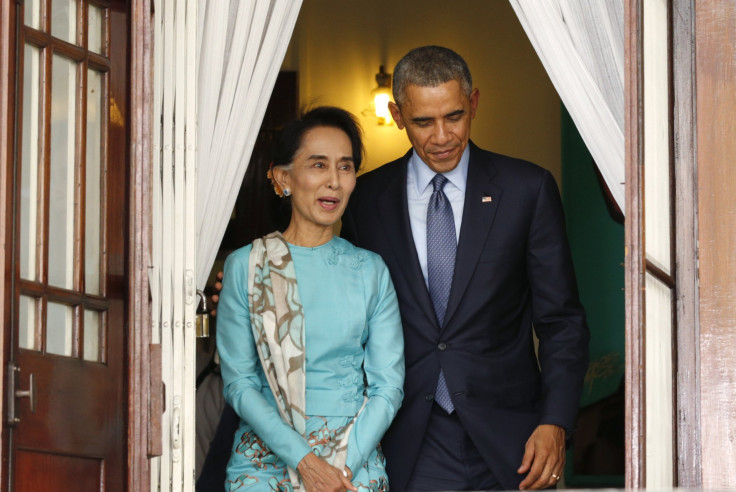Obama Questions Pace Of Myanmar Reforms, Reaffirms Support For Suu Kyi

United States President Barack Obama on Friday expressed concerns over the pace of democratic reforms in Myanmar after meeting with opposition leader Aung San Suu Kyi, and said that the reforms are by “no means complete or irreversible,” according to media reports. Obama’s meeting with the Nobel laureate came a day after he held talks with Myanmar’s President Thein Sein, during which he reportedly said that he is “optimistic” about the process of political transition in the country.
The U.S. “recognizes the challenges ahead and cannot be complacent,” Obama reportedly said on Friday, adding that he and Suu Kyi had discussed ways of speeding up the transition to democracy in Myanmar. Myanmar moved from military to civilian rule in 2010 and is currently governed by a military-backed civilian administration led by Thein Sein.
Although a number of political prisoners have reportedly been freed since after the transition and Suu Kyi’s party, the National League for Democracy, or NLD, has rejoined the political process, the reform process has reportedly stalled in recent months.
Obama also criticized a clause in Myanmar’s constitution barring candidates with foreign spouses or children from running for the president’s post, according to media reports. The law prevents Suu Kyi, whose husband was a British national and whose two sons are also British citizens, from contesting in the country’s next general elections.
“I don't understand a provision that would bar somebody from running for president because of who their children are,” Obama reportedly said. “That doesn't make much sense to me.”
Myanmar’s last general elections, held in 2010, were marred by accusations of lack of fairness, transparency and widespread electoral fraud. NLD boycotted the elections, which were the first in the nation in two decades, reportedly terming the election rules unfair.
Suu Kyi also said that the Burmese people were supporting the opposition’s demand to amend the clause, not because “they they want me to be president, but because they recognize it's unfair, unjust and undemocratic,” according to media reports.
Obama also said that the Burmese government had failed to prevent widespread violence against the minority Rohingya Muslims in the western Rakhine State, where hundreds of people have reportedly been killed since 2012 and thousands have been displaced.
“Discrimination toward the Rohingya or any other religious minority does not express the kind of country, over the long term, that Burma wants to be,” Obama reportedly said.
© Copyright IBTimes 2024. All rights reserved.












